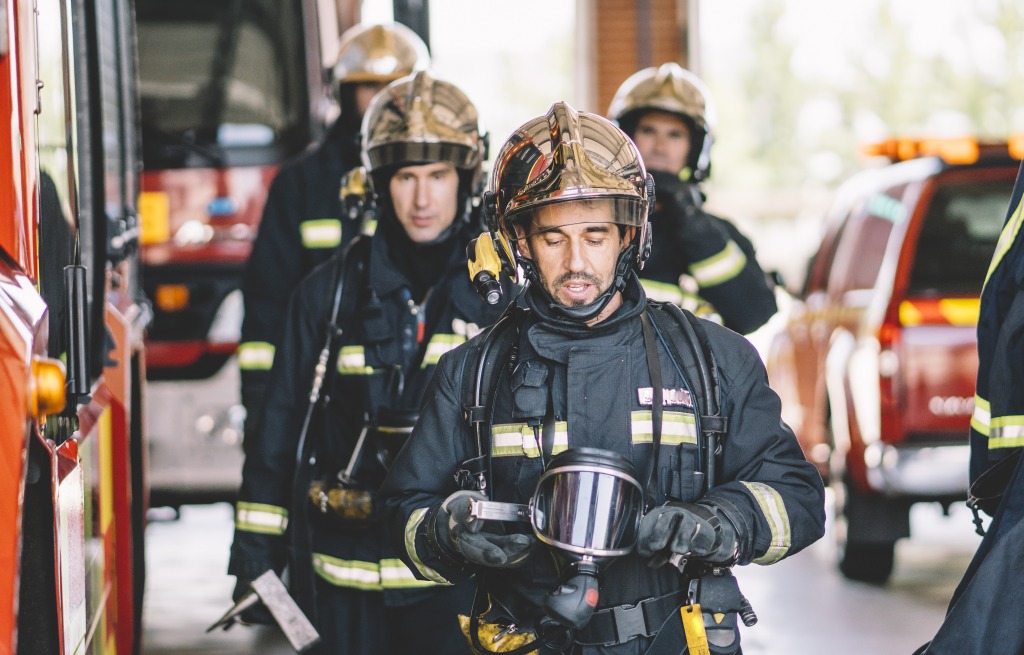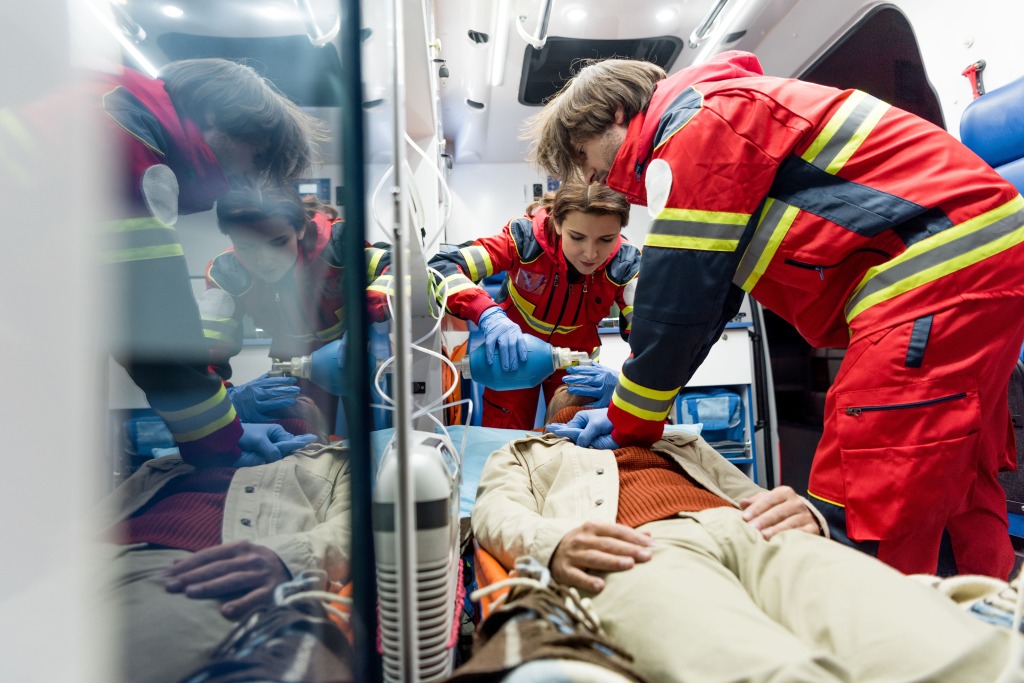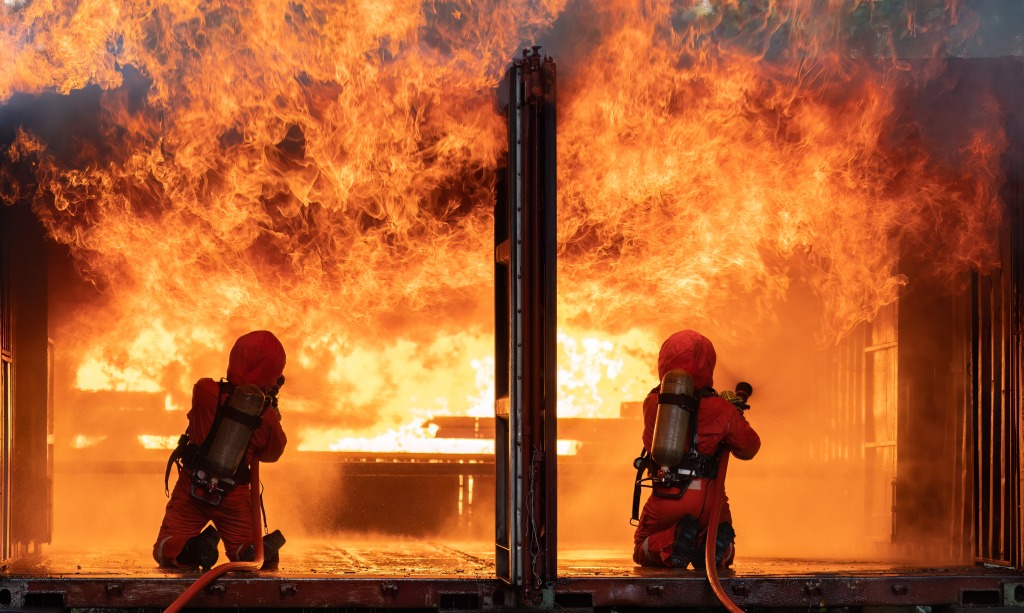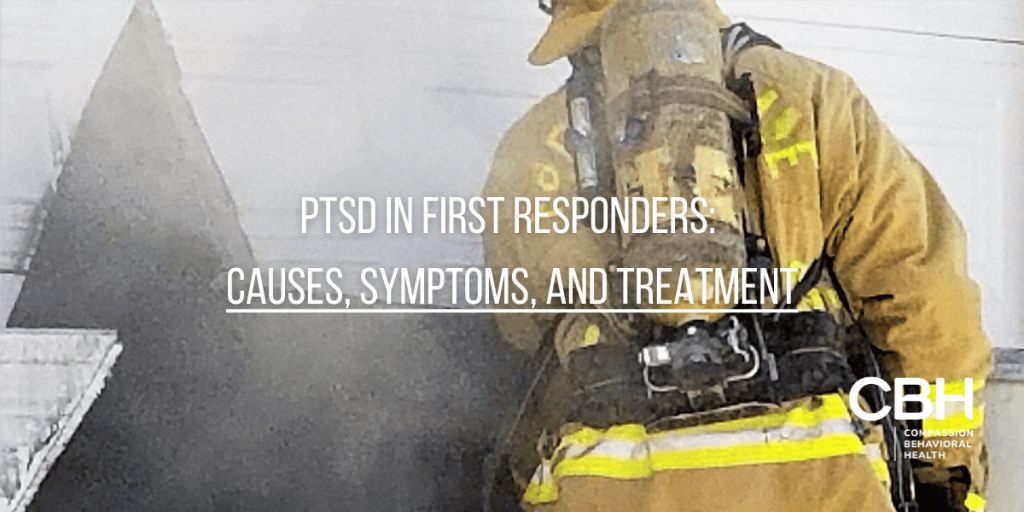Post-traumatic stress disorder (PTSD) is a mental health condition that affects a significant number of first responders. These brave individuals, who include firefighters, police officers, paramedics, and other emergency personnel, are often exposed to traumatic events and considerable stress in the line of duty. This article aims to provide a comprehensive understanding of PTSD in first responders, including its causes, symptoms, and treatment options.
Defining PTSD: An Overview
Post-Traumatic Stress Disorder (PTSD) is a disorder that can develop in a person who has experienced or witnessed a traumatic event. It manifests through a range of symptoms that can significantly impact a person’s daily life. The disorder itself is complex and arises from a combination of biological, psychological, and environmental factors.
When we delve deeper into the science behind PTSD, we discover fascinating insights into how our brains respond to traumatic events. When a person experiences a traumatic event, their brain initiates a “fight-or-flight” response, releasing stress hormones and increasing heart rate and blood pressure. This physiological reaction is a natural defense mechanism designed to protect us from immediate danger.
However, in the case of PTSD, this response becomes dysregulated, leading to persistent symptoms even after the traumatic event has ended. The brain’s stress response system remains in a heightened state of alertness, causing individuals to experience intense anxiety, flashbacks, nightmares, and intrusive thoughts related to the traumatic event.
Moreover, changes in brain structure and function have been observed in individuals with PTSD. Neuroimaging studies have shown alterations in areas associated with memory and fear processing, such as the amygdala and hippocampus. These changes contribute to the development and maintenance of PTSD symptoms, further highlighting the intricate relationship between the brain and this disorder.
PTSD vs. Normal Stress Response
It is important to understand that experiencing stress and anxiety after a traumatic event is a normal response. Our bodies and minds react to potentially threatening situations as a means of self-preservation. However, in individuals with PTSD, these symptoms persist for an extended period, often affecting their ability to function and enjoy a fulfilling life.
The duration, intensity, and impact on daily life differentiate PTSD from a typical stress response. While stress responses typically subside as the individual processes and adapts to the traumatic event, PTSD symptoms can persist for months or even years. This chronic nature of the disorder can lead to significant impairment in various areas of life, including work, relationships, and overall well-being.
Furthermore, the intensity of symptoms experienced by individuals with PTSD is often overwhelming. They may have recurrent nightmares, intrusive thoughts, and flashbacks that transport them back to the traumatic event, causing extreme distress and emotional upheaval. These symptoms can be triggered by various stimuli that remind them of the trauma, making it challenging to navigate daily life without constant reminders of their past experiences.
In conclusion, PTSD is a complex disorder that goes beyond a normal stress response. It involves dysregulation in the brain’s stress response system, leading to persistent symptoms and changes in brain structure and function. Understanding the intricacies of PTSD is crucial in providing effective support and treatment for individuals affected by this debilitating condition.
[ctabox]Ready to Explore the Options?[/ctabox]
First Responders and PTSD: A Closer Look

First responders face unique stressors due to the nature of their work. They are regularly exposed to traumatic incidents, including accidents, violence, and natural disasters. These experiences can have a profound impact on their mental well-being.
When a first responder arrives at the scene of an accident, they are often confronted with chaos and distress. The sight of mangled vehicles, injured individuals, and distraught witnesses can be overwhelming. The adrenaline rush that comes with the job helps them stay focused and perform their duties, but it also takes a toll on their mental health.
Imagine being a paramedic who responds to a call involving a severe car crash. The scene is chaotic, with injured victims screaming for help. The paramedic must quickly assess the situation, prioritize the most critical patients, and provide life-saving interventions. In the midst of this chaos, they witness the pain and suffering of those involved. These experiences can leave a lasting impact on their psyche.
The Unique Stressors for First Responders
First responders encounter high-pressure situations that require them to make split-second decisions to save lives. They witness human suffering, death, and destruction on a regular basis, which can lead to emotional and psychological distress. The constant exposure to traumatic events can take a toll on their mental health and increase the risk of developing PTSD.
Firefighters, for example, face the daunting task of entering burning buildings to rescue trapped individuals. The intense heat, thick smoke, and collapsing structures create an incredibly dangerous environment. The fear and uncertainty they experience during these life-or-death situations can leave a lasting impact on their mental well-being.
Police officers also face unique stressors in their line of duty. They are often exposed to violence, whether it be responding to domestic disputes, arresting dangerous criminals, or dealing with riots and protests. The constant threat to their personal safety and the need to maintain law and order can lead to chronic stress and anxiety.
Prevalence of PTSD in First Responders
Studies have shown that first responders are at a higher risk of developing PTSD compared to the general population. The demanding and unpredictable nature of their work, combined with the cumulative stress experienced over time, increases their susceptibility to the disorder. It is crucial to address the prevalence of PTSD among first responders to ensure their well-being and support their recovery.
Paramedics, for instance, are often exposed to traumatic incidents involving severe injuries or fatalities. The constant exposure to such distressing events can lead to symptoms of PTSD, such as intrusive thoughts, nightmares, and flashbacks. These symptoms can significantly impact their ability to function in their personal and professional lives.

Firefighters, too, face a high risk of developing PTSD. The physical demands of their job, combined with the emotional toll of witnessing destruction and loss, can lead to the development of the disorder. The sound of sirens, the smell of smoke, and the sight of charred remains can trigger painful memories and emotional distress.
Police officers, who are often exposed to violence and danger, also face an increased risk of developing PTSD. The constant need to be vigilant, the exposure to traumatic incidents, and the pressure to maintain public safety can lead to chronic stress and the development of the disorder.
Recognizing the prevalence of PTSD among first responders is essential for providing them with the support and resources they need. By understanding the unique stressors they face and the impact it has on their mental well-being, we can work towards creating a culture of care and resilience within the first responder community.
Unpacking the Causes of PTSD in First Responders
Several factors contribute to the development of PTSD in first responders. Understanding these causes is essential in effectively addressing the disorder and providing necessary support.
First responders face a multitude of traumatic events in their line of work. These events can range from exposure to violent crimes, accidents resulting in severe injuries or fatalities, to natural disasters such as hurricanes, earthquakes, and wildfires. Each of these experiences has the potential to leave a lasting psychological impact on the individual.
When first responders are exposed to violent crimes, they witness the darkest side of humanity. The scenes they encounter, the cries for help they hear, and the violence they witness can haunt their minds long after the incident has ended. The weight of these experiences can manifest as intrusive memories, nightmares, and flashbacks associated with the traumatic event.
Accidents resulting in severe injuries or fatalities can also take a toll on first responders. The sight of mangled vehicles, the sounds of screams, and the overwhelming sense of helplessness can leave an indelible mark on their psyche. These experiences can replay in their minds, disrupting their daily lives and causing immense emotional distress.

Natural disasters pose another significant challenge for first responders. The devastation caused by hurricanes, earthquakes, and wildfires can be overwhelming. They are faced with the destruction of homes, the loss of lives, and the chaos that ensues. Witnessing the aftermath of such disasters can lead to feelings of hopelessness and despair, further exacerbating the risk of developing PTSD.
The Role of Work Environment
The demanding and high-stress work environments of first responders can contribute to the development of PTSD. Long working hours, constant exposure to emergencies, and the need to constantly be on alert can create chronic stress, leading to emotional exhaustion and disconnection from others.
First responders often work long shifts, sacrificing their own well-being to ensure the safety of others. The physical and mental demands of the job can be overwhelming, leaving little time for self-care and recovery. The constant exposure to emergencies and the need to make split-second life-or-death decisions can take a toll on their mental health.
Furthermore, the need to constantly be on alert can lead to hypervigilance, a state of heightened awareness that can be mentally and physically exhausting. This constant state of readiness can make it difficult for first responders to relax and unwind, leading to chronic stress and an increased risk of developing PTSD.
The demanding nature of their work can also result in a sense of disconnection from others. First responders often witness the worst moments of people’s lives, which can make it challenging to form and maintain meaningful relationships. The emotional toll of their work can lead to a sense of isolation and a feeling of being misunderstood by those who have not experienced similar traumas.
In conclusion, the causes of PTSD in first responders are multifaceted. Traumatic events, such as exposure to violent crimes, accidents, and natural disasters, can leave a lasting psychological impact. Additionally, the demanding work environment, characterized by long hours, constant exposure to emergencies, and the need to be constantly on alert, can contribute to the development of PTSD. Recognizing and addressing these causes is crucial in supporting the mental health and well-being of our first responders.
Recognizing the Symptoms of PTSD
PTSD can present a wide range of symptoms that affect various aspects of a person’s life. It is important to recognize these symptoms to seek timely support and treatment.
Emotional and Psychological Symptoms
- Intense feelings of fear, anxiety, or sadness
- Feeling emotionally numb or detached from others
- Irritability, anger, or emotional outbursts
These symptoms can significantly impact relationships, work performance, and overall quality of life.
Physical Symptoms and Co-occurring Conditions
- Chronic fatigue or insomnia
- Headaches, stomachaches, or other physical complaints
- Substance abuse or dependence

PTSD can also increase the risk of developing other mental health conditions, such as depression, anxiety disorders, and substance use disorders.
Treatment Options for PTSD in First Responders
Several effective treatment options are available for first responders experiencing PTSD. It is crucial to seek professional help to address their symptoms and improve their quality of life.
Psychotherapy and Counseling
One of the most common and effective treatments for PTSD is psychotherapy. Different approaches, such as cognitive-behavioral therapy (CBT), eye movement desensitization and reprocessing (EMDR), and exposure therapy, help individuals process traumatic memories, challenge negative thoughts, and develop healthy coping mechanisms.

Medication and Medical Treatments
In some cases, medication may be prescribed to alleviate symptoms associated with PTSD. Antidepressants and anti-anxiety medications can help manage anxiety, depression, and sleep difficulties. Other medical treatments, such as neurofeedback and transcranial magnetic stimulation (TMS), may also be considered, depending on the individual’s needs and preferences.
Understanding PTSD in first responders is crucial for providing appropriate support and treatment. By recognizing the causes, symptoms, and available treatment options, we can contribute to the well-being and recovery of these brave individuals who risk their lives to protect our communities. If you or someone you know is a first responder experiencing symptoms of PTSD, don’t hesitate to seek professional help and support.




